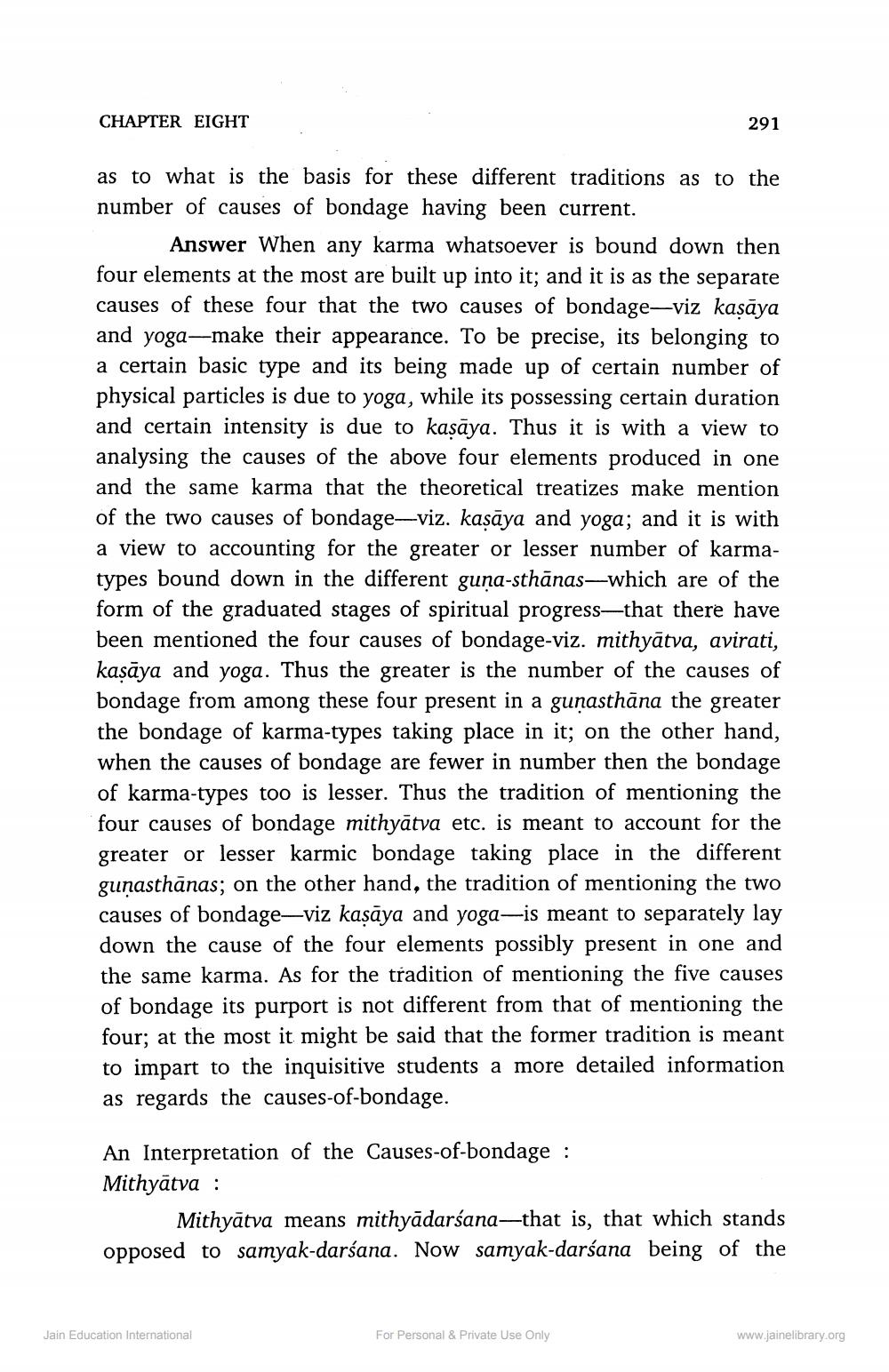________________
CHAPTER EIGHT
291
as to what is the basis for these different traditions as to the number of causes of bondage having been current.
Answer When any karma whatsoever is bound down then four elements at the most are built up into it; and it is as the separate causes of these four that the two causes of bondage—viz kaşāya and yoga-make their appearance. To be precise, its belonging to a certain basic type and its being made up of certain number of physical particles is due to yoga, while its possessing certain duration and certain intensity is due to kasāya. Thus it is with a view to analysing the causes of the above four elements produced in one and the same karma that the theoretical treatizes make mention of the two causes of bondage—viz. kasāya and yoga; and it is with a view to accounting for the greater or lesser number of karmatypes bound down in the different guņa-sthānas—which are of the form of the graduated stages of spiritual progress—that there have been mentioned the four causes of bondage-viz. mithyātva, avirati, kasāya and yoga. Thus the greater is the number of the causes of bondage from among these four present in a gunasthāna the greater the bondage of karma-types taking place in it; on the other hand, when the causes of bondage are fewer in number then the bondage of karma-types too is lesser. Thus the tradition of mentioning the four causes of bondage mithyātva etc. is meant to account for the greater or lesser karmic bondage taking place in the different gunasthānas: on the other hand, the tradition of mentioning the two causes of bondage—viz kaşāya and yoga—is meant to separately lay down the cause of the four elements possibly present in one and the same karma. As for the tradition of mentioning the five causes of bondage its purport is not different from that of mentioning the four; at the most it might be said that the former tradition is meant to impart to the inquisitive students a more detailed information as regards the causes-of-bondage.
An Interpretation of the Causes-of-bondage : Mithyātva :
Mithyātva means mithyādarśana—that is, that which stands opposed to samyak-darśana. Now samyak-darśana being of the
Jain Education International
For Personal & Private Use Only
www.jainelibrary.org




